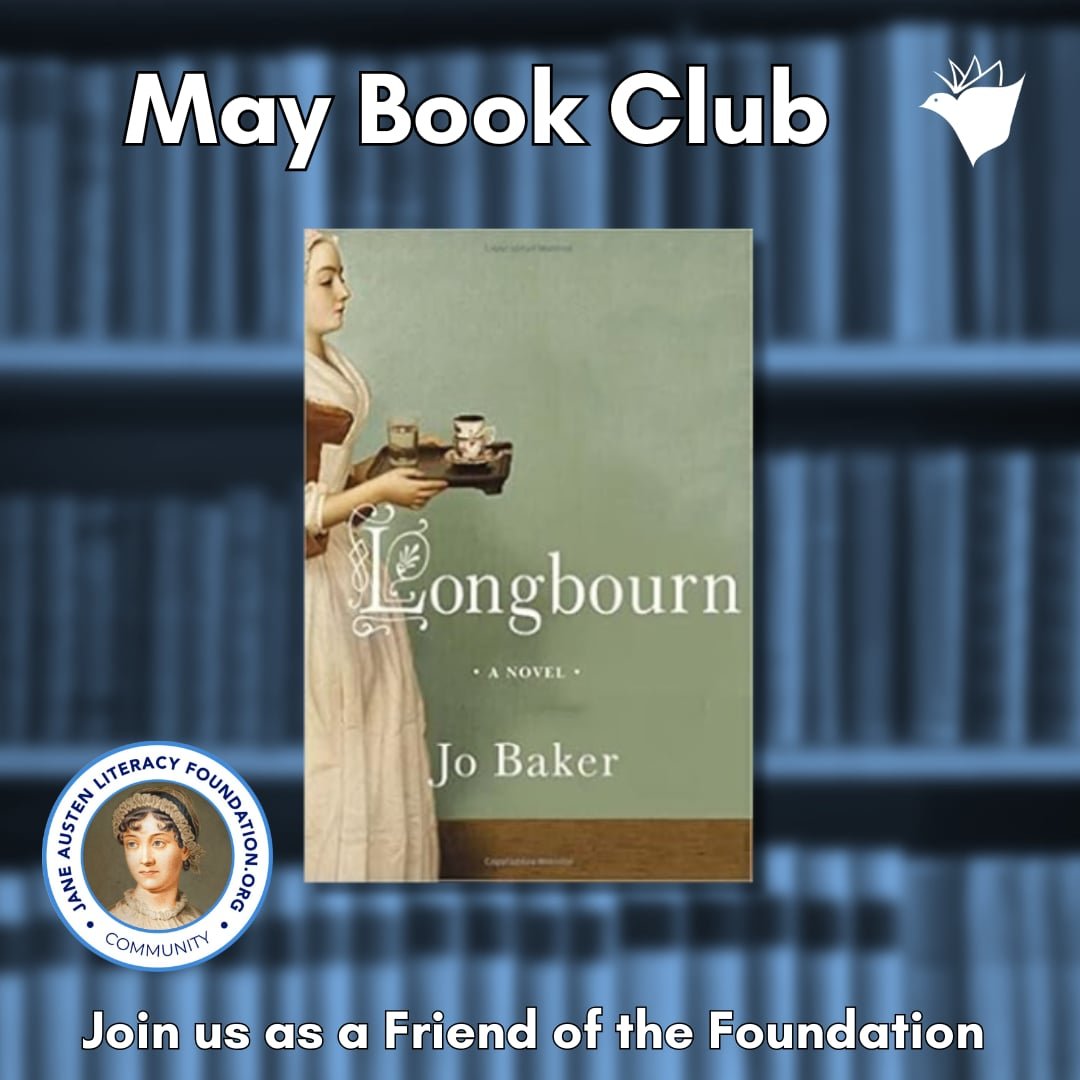“Jane Austen masterfully illustrates that her heroines do not exist in vacuums. They are products of their families – shaped by the love, rivalry, support, and even the failings of their closest relations. ”
In anticipation of the American debut of Miss Austen on Sunday, May 4th, a dramatization of the enduring relationship between Jane and Cassandra Austen, Pride and Possibilities presents an exclusive interview with the screenwriter, Andrea Gibb, and our editor, Meghan Ferrara, examines the profound influence of the unique bond of sisterhood on Jane Austen's celebrated novels.
The Ties That Bind and Shape: Sisterhood and Family in Austen's Heroines
Jane Austen, with her unparalleled insight into human nature, rarely ventured beyond the confines of the drawing-room, the country estate, and the intricate web of provincial society. Yet, within these seemingly limited settings, she explored the vast universe of human relationships. Central to this exploration is the profound influence of family, particularly the unique bond between sisters, in shaping the character, choices, and ultimate destinies of her heroines. Jane drew her inspiration for these story arcs from her own relationships, especially her close bond with her sister, Cassandra. Examining the sisterly pairs of Elinor and Marianne Dashwood (Sense and Sensibility) and Jane and Elizabeth Bennet (Pride and Prejudice) alongside other crucial family dynamics reveals how these connections serve as mirrors, foils, sources of strength, and catalysts for growth.
Perhaps the most explicit exploration of sisterly influence is found in Sense and Sensibility. The novel’s very title delineates the opposing temperaments of its heroines. Elinor, the elder sister, embodies "sense" – prudence, self-control, and a deep awareness of social propriety and financial constraints. Her character is undeniably shaped by her position within the family. Following her father's death and the family’s subsequent disinheritance by their half-brother John and his avaricious wife Fanny, Elinor assumes a quasi-maternal role, tempering her own sorrows to provide stability for her emotionally expressive mother and sister. Her inherent thoughtfulness is amplified by necessity; she must be the anchor in their reduced circumstances. Her quiet endurance of her own heartbreak over Edward Ferrars, while simultaneously managing Marianne’s dramatic despair over Willoughby, highlights a strength forged in responsibility.
Marianne, conversely, personifies "sensibility" – passionate, impulsive, romantic, and disdainful of convention when it conflicts with feeling. Her relationship with Elinor is one of affectionate reliance, even if she initially dismisses Elinor’s caution as coldness. Marianne’s unrestrained nature is, in part, enabled by Elinor’s quiet management of practicalities. However, it is through her connection with Elinor, and the suffering she witnesses her sister endure silently, that Marianne begins her journey towards maturity. After her near-fatal illness, brought on by reckless despair, Marianne gains a profound appreciation for Elinor’s steadfastness and depth of feeling, previously hidden beneath a reserved exterior. Their contrasting natures serve not only as thematic devices but as forces that shape each other. Elinor learns the value of expressing vulnerability (albeit subtly), while Marianne learns the necessity of prudence and self-command. Their sisterhood is a crucible where sense and sensibility are tested, refined, and ultimately reconciled within each character, demonstrating that true strength lies not in one extreme but in balance, fostered through mutual love and support.
In Pride and Prejudice, the bond between Jane and Elizabeth Bennet is less about stark contrast and more about unwavering mutual affection and support within a challenging family environment. While different in temperament – Jane possesses a serene sweetness and an almost determinedly optimistic view of others, while Elizabeth is marked by her lively wit, sharp observation skills, and tendency towards critical judgment – their core values align. They are confidantes, sharing hopes and anxieties, in addition to navigating the complexities of the Meryton social scene and the London marriage market together.
Their relationship is a sanctuary from the often-awkward antics of their mother and younger sisters and the detached irony of their father. Elizabeth’s fierce loyalty to Jane is one of her defining characteristics. She feels Jane’s pain over Bingley’s departure acutely and develops much of her initial prejudice against Darcy because she blames him for influencing Bingley against her beloved sister. Jane’s gentle nature often serves as a soft counterpoint to Elizabeth’s spirited indignation, reminding her (and the reader) of the importance of charity in judgment.
Furthermore, the wider Bennet family significantly shapes the sisters. Mrs. Bennet’s relentless focus on marrying off her daughters creates social hurdles and deepens Jane and Elizabeth’s desire for genuine connection over mere advantageous matches. Mr. Bennet’s intellectual detachment, while fostering Elizabeth’s wit, leaves the younger girls unchecked, leading to Lydia’s disastrous elopement – an event that threatens the entire family’s reputation and profoundly impacts both Jane’s and Elizabeth’s prospects and emotional states. Elizabeth's journey towards overcoming her prejudice and recognizing Darcy's true worth is intertwined with her understanding of family responsibility and the consequences of unchecked behaviour, lessons underscored by her relationship with Jane and the actions of her other relatives. Their sisterhood provides the emotional bedrock that allows them to withstand family chaos and societal pressures, ultimately enabling them to find happiness based on mutual respect and love.
Across these novels, Jane Austen masterfully illustrates that her heroines do not exist in vacuums. They are products of their families – shaped by the love, rivalry, support, and even the failings of their closest relations. The sisterly bonds, whether defined by contrast like Elinor and Marianne or by deep affinity like Jane and Elizabeth, provide crucial emotional anchors, spaces for confession, and arenas for personal growth. They act as mirrors reflecting different facets of womanhood and foils highlighting specific character traits. Simultaneously, the broader family context – awkward parents like the Bennets or even antagonistic relatives like Fanny Dashwood and Lady Catherine de Bourgh – creates the social and economic landscapes the heroines must navigate. These relationships present challenges, impose limitations, and ultimately contribute significantly to the heroines' journeys towards self-knowledge, maturity, and the prospect of a fulfilling life, often culminating in marriages that promise a new, chosen family structure built on the lessons learned within the old. In Austen’s world, family, in all its complexity, is inextricably linked to identity and destiny.
As we anticipate the American premiere of "Miss Austen" on Sunday, May 4th, we are invited to witness a dramatized portrayal of the sisterly bond that influenced Austen's literary vision. While the series offers an interpretation rather than a documentary account of Jane and Cassandra's relationship, it nonetheless illuminates how their remarkable connection may have shaped Jane's perception of family dynamics throughout her novels.
In this dramatic exploration of two sisters who protected each other's stories through letters, memories, and steadfast loyalty, viewers can find new perspectives on the nuanced relationships in Austen's works. Just as Elizabeth and Jane Bennet created sanctuary in each other amidst family challenges, and Elinor and Marianne Dashwood balanced and refined each other's temperaments, Jane and Cassandra's relationship provided the emotional foundation from which one of literature's most perceptive voices emerged. Their story, even in dramatized form, reminds us that behind every great work stands the profound influence of those who shaped the author's understanding of humanity's most essential bonds.
© Meghan Ferrara 2024
Meghan Ferrara is a middle school English teacher from Saint Louis, MO, where she resides with her family. She has her undergraduate degree in French language and literature and graduate degrees in French and Foreign Language Education as well as Reading and Literacy. She is also a certified Reading Specialist. Meghan first fell in love with Jane Austen after seeing the 1995 version of Pride and Prejudice and subsequently reading all of Austen’s novels in middle school.
Jane Austen and the Willow Patterned Princess
We are pleased to announce a special fundraising collaboration, commemorating Jane Austen's 250th birthday anniversary and raising money for the Jane Austen Literacy Foundation.
'Jane and the Blue Willow Princess' tells a story of a young Jane Austen, playing in the garden of the Steventon Rectory, making up stories to entertain her family.
It is a beautifully produced book and includes a quote from our founder and chair, Caroline Jane Knight, the last of Jane's nieces from Chawton House. A proportion of the profits from every sale will be donated to the Jane Austen Literacy Foundation.
Written by Catherine Little, illustrated by Sae Kimura, and published by Plumleaf Press, we are proud to be part of this lovely book. Thank you Plumleaf Press!
Purchase from this link using the code JA250, and we’ll receive 25% of the profits!
Our Community in May
Join us for our May Book Club! We're diving into Longbourn by Jo Baker – a captivating below-stairs reimagining of Pride and Prejudice told from the servants' perspective.
What happens in the Bennet household when Elizabeth and Jane aren't in the room? This fresh take on a beloved classic is sure to spark lively discussion!
Have you checked out our YouTube channel yet? Each Friday, we upload a new video exploring Jane Austen's world, dissecting her beloved characters, and sharing our latest book recommendations! From analyzing Lizzy Bennet's witty comebacks to helping you find hidden gems for you to read, we cover it all. Head on over and hit that subscribe button to join us every Friday!








